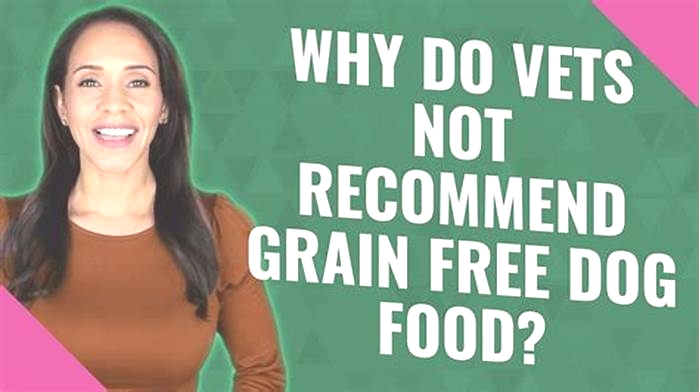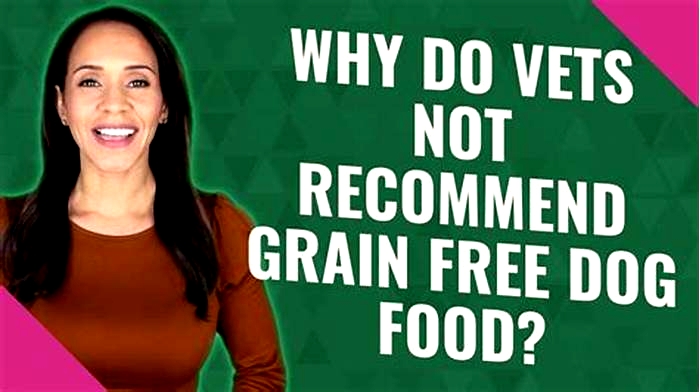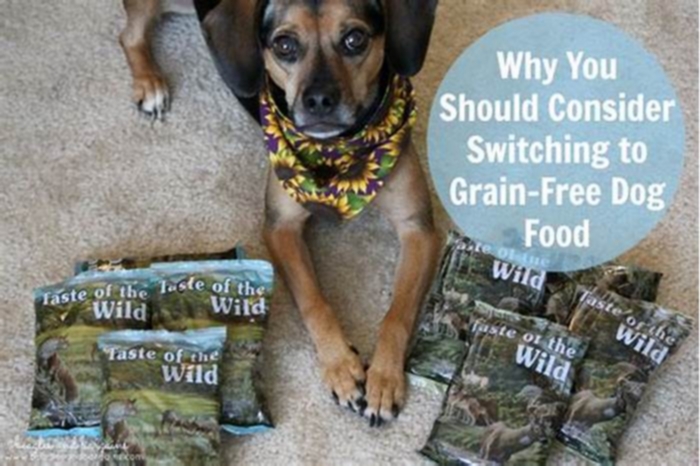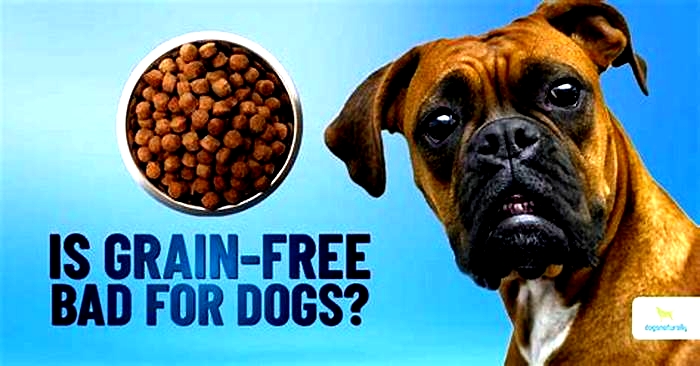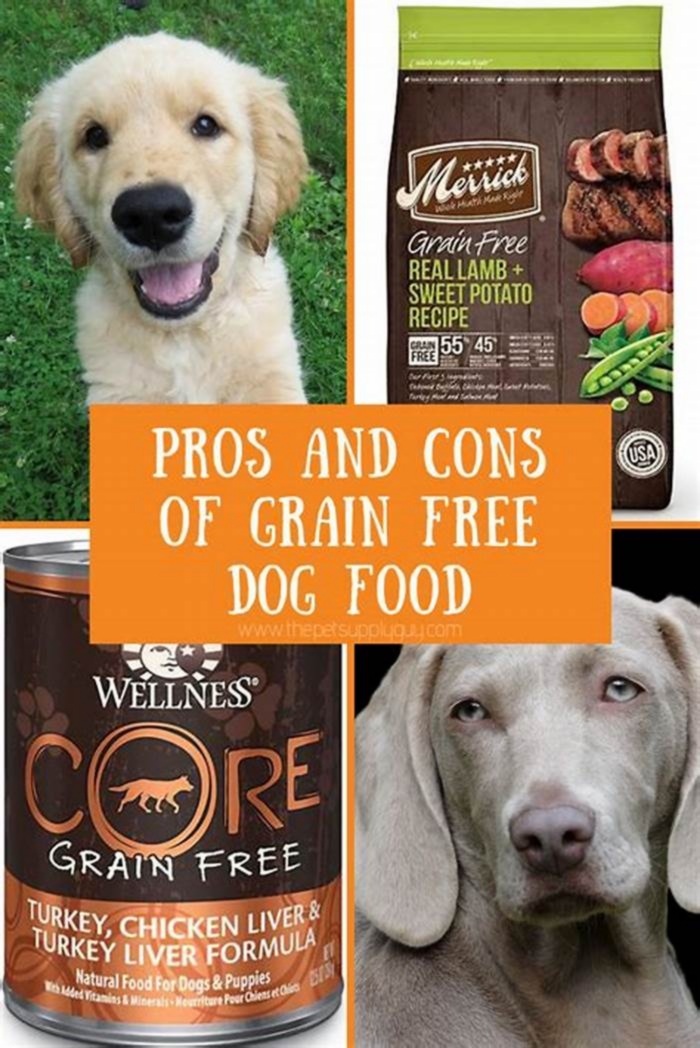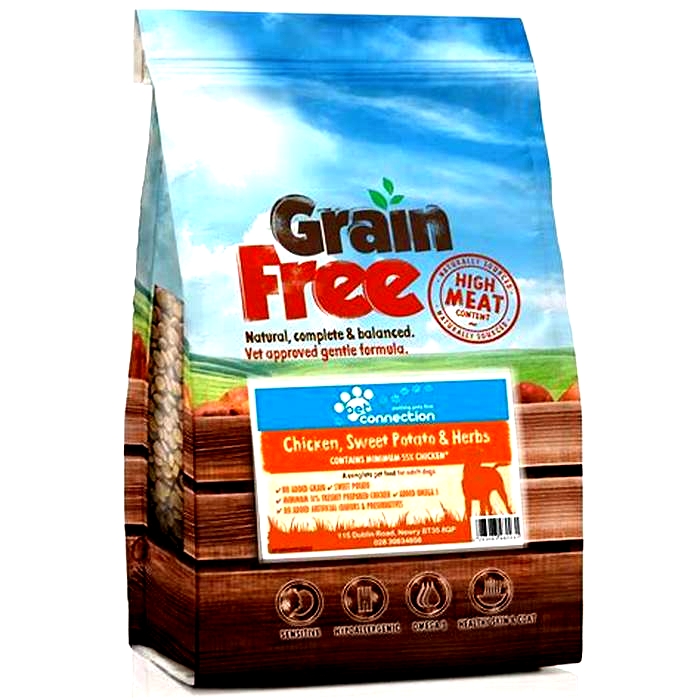Do vets recommend grain free
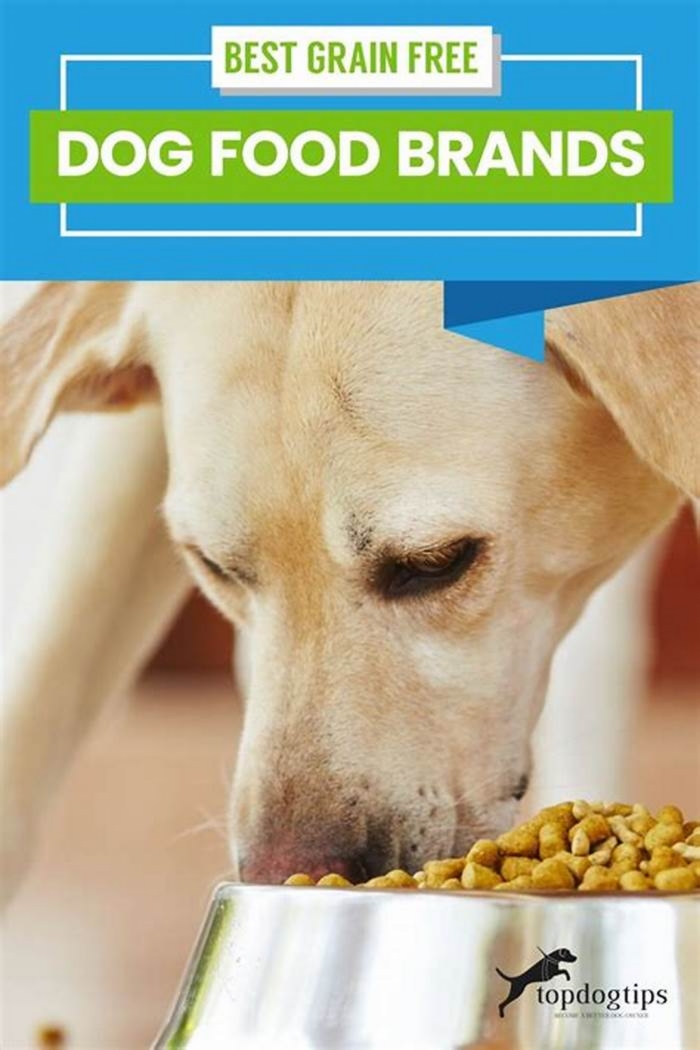
Are Grain-Free Diets Bad for Dogs?
What Is Grain-Free Food?
Most of us are familiar with wheat, rice, corn, and barley since these are part of our usual diet. We think of them as carbohydrates or carbs. Whole grains contain protein, fiber, vitamins, and minerals, which makes them healthy both for us and for our dogs.
About 20 years ago, as veterinarians were seeking better diets for dogs with food allergies, nutrition companies conducted AAFCO (Association of American Feed Control Officials) food trials to determine the safety of hypoallergenic diets, some of which were grain-free. These diets have been fed safely to dogs and cats since that time.
Starting about 2005 there was a rise in marketing by pet food companies that promoted grain-free diets as healthier for dogs with health issues or allergies, or because grain-free diets had fewer fillers.
The word filler itself is misleading, as filler is defined as an ingredient that adds bulk to the food but no nutritional value to the pet (i.e. it is not digested). However, fillers added to pet foods are typically in the form of fiber, which feed intestinal bacteria and produce the short chain fatty acids that keep the intestinal tract healthy. Without fiber/fillers, the pet food would not be complete and balanced.
Pet parents clearly want the best for their dogs. The information most readily available to pet parents online and pet stores at this time suggested that grain-free diets were healthy, even if veterinarians were not always on board.
Is Grain-Free Food Linked to Health Conditions in Dogs?
Dilated cardiomyopathy (DCM) is a breed-related disorder causing dilation and thinning of the chambers of the heart. This can lead to heart failure, arrhythmias, and sudden death. The breeds most commonly affected are theDoberman Pinscher, Golden Retriever, Great Dane, Boxer, andCocker Spaniel.
In 2018, the FDA began receiving reports of dog breeds with DCM that typically do not develop this disease. The common factor among these dogs was they all were eating grain-free or boutique (uncommon) diets. Once they were placed on a diet with grains, the dogs slowly recovered.
Seventeen peer-reviewed studies over the last 4 years have been published, with 1,382 dog cases and 20 cat cases (as of Dec. 23, 2022) reported to the FDA. The case numbers are also believed to be underreported, as the pets need a workup by a cardiologist and the FDA reporting process can be difficult. The original theory that this could be a taurine deficiency in these diets, which had been seen in rare cases, has proven to be more complex.
One study in 2018 found taurine deficiency only in Golden Retrievers eating a grain-free diet. However, future studies could not find taurine deficiency in any breed, including the Golden Retriever. There does appear to be an association between pulses (part of the legume family, including peas, lentils, and chickpeas) being high in the ingredient list in the reported cases.
There are no other major health issues associated with grain-free diets outside of DCM. Dogs given over-the-counter diets for food allergies may continue to experience itching, vomiting, or diarrhea if the diet was not made in a facility specifically dedicated or cleaned to prevent cross-contamination of proteins for food-allergic pets.
Why Would Dogs Be Recommended Grain-Free Food?
Celiac disease, a disease of gluten intolerance that is very common in people, is very rare in dogs. There is a line of Irish Setters in the United Kingdom that have gluten intolerance, similar to celiac disease. Some Border Terriers have epileptoid cramping syndrome, which is relieved by a gluten-free diet. These are the only known dogs with gluten-responsive medical issues.
Dogs with food allergies may benefit from a limited ingredient diet or hydrolyzed diet, and some of these diets are grain-free. Therapeutic prescription hypoallergenic diets, which have gone through AAFCO or more advanced feeding trials, have not had reports of dogs developing DCM to date. These are the diets that veterinarians recommend, not just because of the DCM issue.
Prescription hypoallergenic diets are made under rigorous protocols to prevent cross-contamination of ingredients, as well as testing for any rogue ingredients. Dogs are much less likely to have flare-ups of allergies or gastrointestinal issues because of these strict protocols. While the prescription diets are expensive, pet parents may ultimately save money on veterinary bills due to fewer relapses of their pets signs.
Should I Feed My Dog Grain-Free Food?
If you are considering a grain-free diet for certain reasons, including that your pup wont eat their regular diet, is constantly itchy, or has a sensitive stomach, the first step is to seek veterinary advice.
A medical issue may need to be addresssed in addition to the one you think is already happening. Also, your vet may recommend a different diet based on your dogs age or overall health, based on clinical signs.
Featured Image: iStock/VYCHEGZHANINA
References
Sanderson, SL. Pros and Cons of Commercial Pet Foods (Including Grain/Grain Free) for Dogs and Cats. Veterinary Clinics of North America: Small Animal Practice. 2021 May;51(3):529-550.
Freeman, L. Diet-associated dilated cardiomyopathy: The cause is not yet known but it hasnt gone away. Clinical Nutrition Service, Cummings School of Veterinary Medicine, Tufts University. February 2023. Ibid.
Questions & Answers: FDAs Work on Potential Causes of Non-Hereditary DCM in Dogs. US Food and Drug Administration. December 2022.
WRITTEN BY
Jennifer S. Fryer, DVMVeterinarian
Jennifer S. Fryer, DVM graduated with Honors from Brown University with an AB in Development Studies, an interdisciplinary study of the...
What Dog Owners Need to Know About the FDAs Grain-Free Diet Alert and DCM
TheFDA is investigatingpotential links between canine heart disease and diet specifically grain-free dog food diets.Weve compiled the information you need to know to understand this ongoing investigation.
Why Is the FDA Investigating Grain-Free Dog Food?
It is easy to panic anytime we see an FDA headline about pet food. After all, keeping our dogs healthy is essential to us, and we know that diet can make a big difference in a dogs well-being. We reached out to Dr. Jerry Klein, the Chief Veterinary Officer of the AKC, to hear his thoughts on the ongoing FDA investigation.
The FDA is investigating a potential dietary link between canine dilated cardiomyopathy (DCM) and dogs eating certain grain-free dog foods. The foods of concern are those containing legumes such as peas or lentils, other legume seeds, or potatoes listed as primary ingredients. The FDA began investigating this matter after it received reports of DCM in dogs that had been eating these diets for a period of months to years. DCM itself is not considered rare in dogs, but these reports are unusual because the disease occurred in breeds of dogs not typically prone to the disease.
Between January 1, 2014 and April 30, 2019, the FDA received 524 reports of DCM (515 dogs, 9 cats), and most reports were submitted after the FDAs first public alert in July 2018. The total number of pets affected is greater than 524 because some reports included multi-pet households.
What is Canine Heart Disease or Dilated Cardiomyopathy (DCM)?
Dilated cardiomyopathy (DCM) is a type of canine heart disease that affects the heart muscle. The hearts of dogs with DCM have a decreased ability to pump blood, which often results in congestive heart failure.
Some breeds, especially large and giant breeds, have a predisposition to DCM. These breeds include Doberman Pinschers, Great Danes, Newfoundlands, Irish Wolfhounds, and Saint Bernards. While DCM is less common in medium and small breeds, English and American Cocker Spaniels are also predisposed to this condition.
The reports submitted to the FDA span a wide range of breeds, including many without a known genetic predisposition. When early reports from the veterinary cardiology community indicated that recent, atypical cases in breeds like Golden Retrievers, Labrador Retrievers, Whippets, Bulldogs, and Shih Tzus all consistently ate grain alternatives in their diets, the FDA took notice.
Should you be Concerned About Grain-Free Dog Food?
In the FDAs July 2019 update on diet and canine heart disease, they examined labels of dog food products reported in DCM cases to determine whether the foods were grain-free (defined as no corn, soy, wheat, rice, barley or other grains), and whether the foods contained peas, lentils, chickpeas, beans, or potatoes (including sweet potatoes). Their report states that more than 90 percent of foods reported in DCM cases were grain-free, 93 percent of reported foods contained peas and/or lentils, and 42 percent contained potatoes/sweet potatoes.
According to Dr. Klein, At this time, there is no proof that these ingredients are the cause of DCM in a broader range of dogs, but dog owners should be aware of this alert from the FDA. The FDA continues to work with veterinary cardiologists and veterinary nutritionists to better understand the effect, if any, of grain-free diets on dogs.
The FDAs July 2019 update includes the names of dog food brands that were named 10 times or more in reports submitted through April 30, 2019. Most reports were for dry dog food, but raw, semi-moist and wet foods were all represented.
- Acana (67 reports)
- Zignature (64 reports)
- Taste of the Wild (53 reports)
- 4Health (32 reports)
- Earthborn Holistic (32 reports)
- Blue Buffalo (31 reports)
- Natures Domain (29 reports)
- Fromm (24 reports)
- Merrick (16 reports)
- California Natural (15 reports)
- Natural Balance (15 reports)
- Orijen (12 reports)
- Natures Variety (10 reports)
- Nutrisource (10 reports)
- Nutro (10 reports)
- Rachael Ray Nutrish (10 reports)
In the Dec. 1 version of theJournal of the American Veterinary Medical Association, Lisa M. Freeman, DVM, Ph.D., DACVN, provided an update to the research on DCM and emphasized the issue is not just grain-free diets. She calls the suspected diets BEG diets (boutique companies,exotic ingredients, or grain-free diets).
The apparent link between BEG diets and DCM may be due to ingredients used to replace grains in grain-free diets, such as lentils or chickpeas, but also may be due to other common ingredients commonly found in BEG diets, such as exotic meats, vegetables, and fruits, Freeman wrote.
Freeman emphasizes that although there appears to be an association between DCM and BEG diets, the relationship has not yet been proven, and other factors may be equally or more important.
The FDA encourages pet owners to report cases of dogs and cats with DCM that they suspect to be linked to diet by using the Safety Reporting Portal.
As a general rule of thumb, the best thing you can do for your dogs dietary health is to consult your veterinarian. Togetheryou can weigh the pros and cons of your dogs diet, consider whether grain-inclusive dog food or grain-free dog food are right for your dog, and, if necessary, monitor your dog for signs of DCM.
Do vets recommend grain free dog food?
While grain dog food was blamed for dog allergies, grain-free dog food does not look as perfect due to the FDAs findings. Its important to point out that there are grain dog foods containing lentils, potatoes, and peas, but not in high concentrations that grain-free diets use to replace grains.
Which is better for dogs grain or grain free?
If your dog has a grain allergy, of course, you can put him on a grain-free diet, which should address his health issues. Additionally, grain-free pet foods could be beneficial if your dog has digestive issues, since carbohydrates can be difficult for some dogs to digest.
Why do vets not like grain free dog food?
When it comes to the question of grain-free diets, veterinarians recommended that dogs be fed a grain-inclusive diet unless there is a reason that makes it unsuitable. One thing to always look out for when choosing a food is an adequacy statement on the label.
Do dogs need grains in food?
Grain-free dog food does not contain wheat, rice, or other types of grains. Grains are usually substituted for legumes, which could cause dilated cardiomyopathy (DCM). When you cut out grains, dogs can miss out on fiber, fatty acids, and protein.
How do I know if my dog needs grain free food?
- Itchiness.
- Excessive hair loss.
- Bald patches.
- Inflamed skin.
- Sores and scabs.
- Hot spots
What is the best dog food recommended by vets?
- Pupper Chicken Topper.
- The Farmers Dog. Image courtesy The Farmers Dog.
- We Feed Raw. Image courtesy We Feed Raw.
- PetPlate. Image courtesy PetPlate.
- Nom Nom.
- Darwins Natural Pet Products.
- Raised Right Pets.
- Spot & Tango.
What is the best food to feed my dog?
- Easily Digestible.
- It is Less Allergenic.
- Helps Boost Health and Activity Level.
- Its Beneficial for Dogs with Diabetes and Cancer.
- More Expensive.
- Not Ideal for Less Active Dogs.
- It Can Be Challenging for Picky Eaters.
- High in Carbohydrate.
Is grain free food killing dogs?
Should dogs eat grains? Whole grains such as corn provide dogs with important digestible nutrients including energy, protein, vitamin E and linoleic acid. It is those nutrients that are crucial to a dogs overall health.
Does grain free dog food cause dogs to poop more?
Last week the FDA made a scary announcement: grain-free food might be linked to a dangerous heart condition in dogs. This is actually the third update in a saga thats been going on since July 2018, when the FDA first began investigating the link.
Is 2022 Grain Free Dog Food Safe?
Yes, some dogs will have more frequent elimination on grain free, thats not necessarily a bad thing. My dog with allergies does best on Nutrisca grain free kibble, however she does have more frequent small bowel movements (3/4 as opposed to 1/2).
What dog food is killing dogs?
While theres no significant evidence that says grain-free diets are bad for all dogs or that grain-free dog food contains harmful ingredients, its best to make sure your dog gets a varied diet. Including grains in your dogs diet can help them get all the nutrients they need to lead a healthy life.
Does grain free cause heart problems in dogs?
A pet food recall is widening after the Food and Drug Administration announced that more than two dozen dogs died after eating Sportmix brand dry kibble. The statement issued on Monday said that the suspect is aflatoxin, a byproduct of a corn mold Aspergillus flavus, which at high levels can kill pets.
What grains should dogs avoid?
The FDA is investigating more than 500 reports that appear to link dog foods that are marketed as grain free to canine dilated cardiomyopathy. Sixteen brands of dog food may be associated with a heightened risk of heart failure in dogs, according to the Food and Drug Administration.
Are sweet potatoes good for dogs?
Grain-free dog food excludes commonly used cereal grains like wheat, corn, rice, sorghum, barley, and rye. These grains are often replaced with legumes like lentils and peas or white potatoes and sweet potatoes, which are high in fiber and other nutrients while also maintaining a low-glycemic index.
What grain-free dog foods are causing heart problems?
- Taste of the Wild Ancient Prairie.
- Instinct RawBoost Mixers.
- Orijen Original Dry Dog Food.
- Organix Chicken & Oatmeal Dry Dog Food.
- Zignature Lamb Limited Ingredient Canned Dog Food.
- Freshpet Fresh From the Kitchen.
- The Farmers Dog.
- Rachael Ray Nutrish Supermedleys.
Why cant dogs have grains?
Why Sweet Potatoes Are Good for Dogs. Sweet potatoes provide an excellent source of dietary fiber, which helps the digestive system function more effectively. Eating fiber on a regular basis lowers the risk of heart disease and certain types of cancers.
Does grain free dog food Constipate?
Gluten intolerance is by far the biggest problem associated with grain-based dog food and treats It can be found in ingredients like wheat and barley which feature prominently as filler ingredients in a lot of dog food brands. Gluten intolerance wreaks havoc in the dogs digestive system.
What foods are dogs most allergic to?
Grain-free dog food will not cause your dog to have constipation. Your dog requires fibre in his diet in order to enable him to pass his motions. This fibre is provided by grains in many dog foods. However, grain-free recipes include alternative sources of fibre from vegetables, fruit and pulses.
What are the symptoms of grain allergies in dogs?
The most common food allergens in dogs are proteins, especially those from dairy, beef, chicken, chicken eggs, soy, or wheat gluten. Each time a pet eats food containing these substances, the antibodies react with the antigens, and symptoms occur.
Is rice considered a grain in dog food?
Symptoms that are frequently associated with grain allergies include red, itchy skin, hair loss associated with constant scratching and chewing, ear infections, and inflamed pads on the underside of paws, often combined with obsessive licking.
What is the number 1 healthiest dog food?
- The Farmers Dog Best Overall.
- Solid Gold Barking at the Moon High-Protein.
- Natures Logic Sardine Meal Feast All Life Stages.
- K9 Natural Beef Feast Raw Grain-Free Freeze-Dried Dog Food.
- Sojos Wild-Caught Salmon Recipe Grain-Free Freeze-Dried Raw Dog Food.
What dry dog food do most veterinarians recommend?
- Acana (67 cases)
- Zignature (64 cases)
- Taste of the Wild (53 cases)
- 4Health (32 cases)
- Earthborn Holistic (32 cases)
- Blue Buffalo (31 cases)
- Natures Domain (29 cases)
- Fromm (24 cases)
What ingredients should I avoid in dog food?
- Best overall dry dog food: Purina Pro Plan Savor Adult Shredded Blend.
- Best sensitive skin and stomach dry dog food: Purina Pro Plan Adult Sensitive Skin & Stomach.
- Best dry dog food for all life stages: WholeHearted.
- Best natural dry dog food: Diamond Naturals.
What meat should dogs not eat?
When reading dog food labels, grains you may see include corn, rice, oats, barley, wheat, rye, and sorghum. These are the standard grains in dog foods, says Brooks. They are all fine for dogs to eat and are a good source of fiber as well.
Can dogs survive only on dry food?
Bacon, Ham and Fat Trimmings Bacon, bacon grease, ham, and fat trimmed off meat or bones contains a lot of salt and/or fat and at the least can cause indigestion, vomiting, and diarrhea in both dogs and cats. These foods can also cause pancreatitis, a serious, potentially deadly inflammation of the pancreas.

